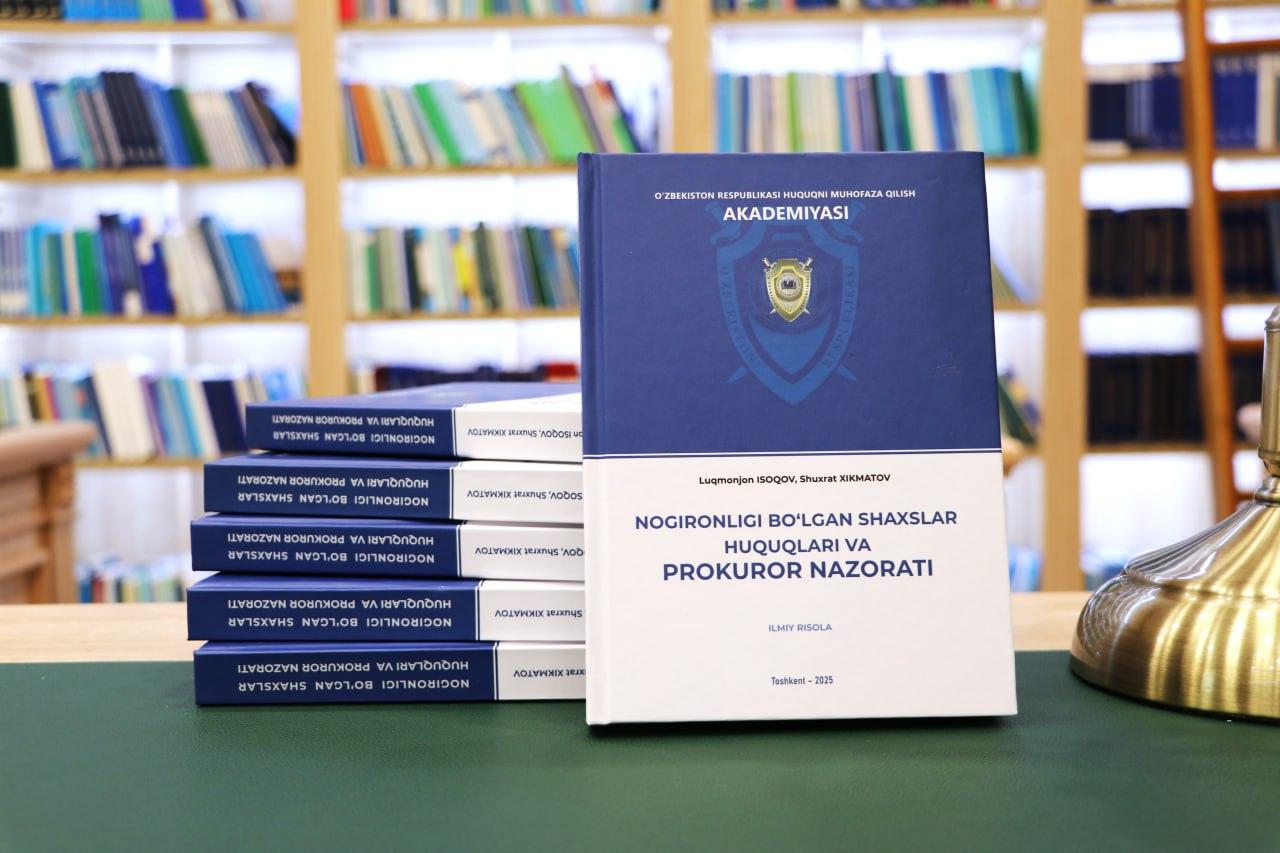A new scholarly monograph titled “The rights of persons with disabilities and prosecutorial supervision” has been published
One of the key areas of ongoing reforms in Uzbekistan aimed at ensuring and protecting human rights is the safeguarding of the rights of persons with disabilities and supporting their full integration into society. With the aim of conducting a scholarly analysis of this vital area the department of international law and human rights at the Law enforcement academy of the Republic of Uzbekistan, in cooperation with the Romitan specialized prosecutor’s office, has prepared and published a scientific monograph titled “The rights of persons with disabilities and prosecutorial supervision”.
This scholarly work is dedicated to the protection of the rights of persons with disabilities, based on the specifics of their legal status, international standards, and national legislation. The publication analyzes recent international and national trends in the protection of the rights of persons with disabilities, with a particular focus on strengthening and improving the role of prosecutorial supervision.
Indeed, in today’s context, where the human factor is of paramount importance, new approaches are needed to address the adaptation of persons with disabilities to society, their employment, access to education, and protection of their rights. This, in turn, calls for further strengthening of the role of prosecutorial oversight. The monograph provides a comprehensive analysis of modern mechanisms and international best practices in this field.
The authors critically examine national legislation on the protection of the rights of persons with disabilities (including “the Law on the protection of the rights of persons with disabilities” and the Convention on the rights of persons with disabilities) and the practice of its implementation. Based on a comparative analysis, scientifically grounded proposals and recommendations are put forward. The publication also offers practical suggestions for improving the organizational and legal foundations of prosecutorial oversight.
Furthermore, the concluding sections of the work include important excerpts from key regulatory legal acts concerning the rights of persons with disabilities, as well as a list of the benefits provided to them.
This publication is intended for faculty members, doctoral candidates, independent researchers, students of law schools (cadets and trainees), employees of prosecutorial authorities, judges, lawyers, and a wide range of readers interested in human rights and prosecutorial oversight.

